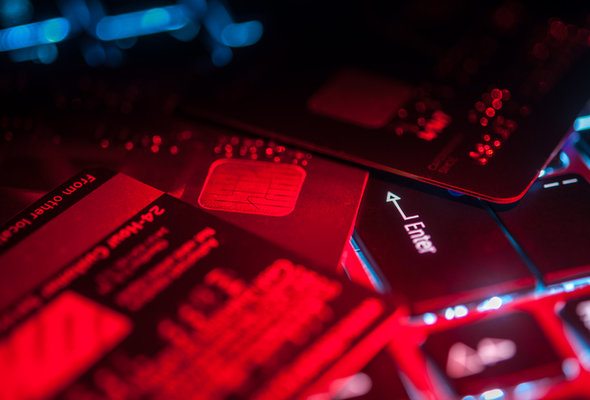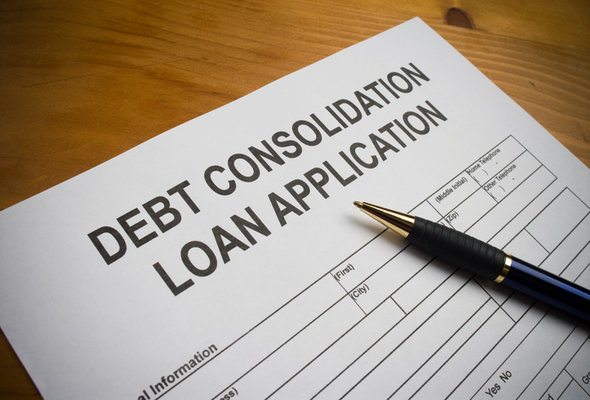Month after month, you may struggle to keep up with payments on all kinds of loans, from credit card debt to medical bills. Most forms of debt require you to pay back borrowed money with interest, but not all debt is the same. There are two major types of debt and it’s important to know the difference between them in order to successfully manage your debt in the long run.
Find out now: Which credit card is best for me?
Secured Debt

Before you can understand what unsecured debt is, it’s helpful to know about secured debt. With any secured debt, you’re borrowing money for an asset that has a lien placed on top of it. That asset becomes collateral for your loan. In other words, when you don’t pay the loan back on time, your lender can seize the asset.
Mortgages and car loans are two types of secured debts. If you have a mortgage, your home counts as an asset. Failing to make the monthly payments on your loan could end in your lender taking ownership of your house, leaving you literally without a roof over your head. And that won’t be the only thing you’ll have to worry about. Your credit score will likely drop as well.
Related Article: What Is a Secured Loan?
Unsecured Debt
Unsecured debt doesn’t come with any collateral. Credit cards are a popular kind of unsecured debt. Student loans and payday loans fall into this category as well. If you have a hard time making your credit card payments, your lender won’t have anything to confiscate. That’s why when it comes to debt, lenders generally prefer secured debts. If things go sour, at least they can walk away with something. On the other hand, because unsecured loans are riskier, lenders are typically able to charge higher interest rates. It can also be harder to qualify for an unsecured loan, especially if you have any credit issues.
In the event that an unsecured debt doesn’t get paid off, your lender can sue you and possibly even have your wages garnished, meaning that part of your paycheck will automatically go toward the debt you owe. Or your lender can find a debt collector who can keep after you until you cough up the extra cash.
Consolidating Your Unsecured Loans
Ideally you will pay back your debt in full and on time. But if you are having trouble keeping up with payments or are overwhelmed with multiple kinds of debt, there are some ways to make paying off your debt a bit more manageable.
With unsecured debt, you have the option of consolidating your loans, or putting them together. Instead of having to juggle a bunch of different loans, you’ll only have to make one payment and you can often lower your interest rate in the process. How easily you’ll be able to consolidate your loan will depend on your credit score.
If your credit is in pretty good shape and you’re trying to combine debt from different credit card accounts, you’ll likely be able to qualify for a personal unsecured debt consolidation loan from your bank, a credit union or another lender.

If you’re not interested in getting another loan, you could also apply for a credit card with a low or 0% interest rate and transfer balances from cards with higher interest rates and fees. With a lower-interest credit card, you could significantly reduce your monthly credit card bill. It’s important to check for and factor in any balance transfer fees you will have to pay.
What is the Best Method for Paying Off Debt?
If your credit score looks a little rough, it could be difficult to get an unsecured debt consolidation loan. Your best bet might be to seek out a non-profit debt management program that’s willing to work with you one-on-one to come up with a solution that’ll help you meet your financial goals.
Bottom Line
Not all loans are created equal. It’s important to prioritize and plan ahead to keep your debt from spinning out of control. Secured loans, like mortgages and auto loans, have collateral so they’re considered to be less risky in the eyes of lenders. But if you have a secured loan, you could eventually lose your home or car if you can’t pay your bills on time.
You might not physically lose as much with unsecured debt from credit cards and student loans, but it can be harder to make room for them in your budget since the interest rate for this type of loan is typically higher. Also, you could see a end up with debt collectors hounding you.
If you’re thinking about consolidating your unsecured debt or moving your balances to a lower-interest credit card, it’s a good idea to read the fine print to make sure you know whether your low interest rates will actually go up after a certain period of time. The more you know, the better decision you can make for your specific situation.
Photo credit: ©iStock.com/Feverpitched, ©iStock.com/CHUYN, ©iStock.com/KLH49
